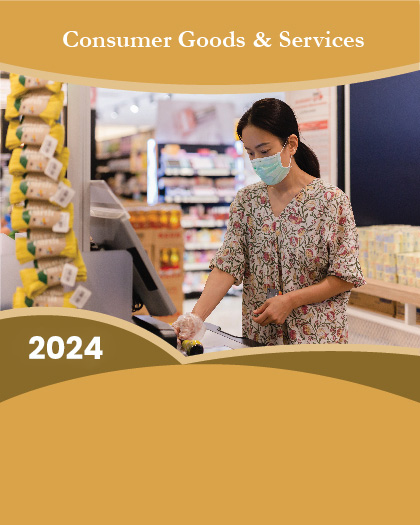
Halal cosmetics market includes the cosmetics which only use animal ingredients from animals which have been Islamically slaughtered. The increase in the global Muslim population and their purchasing power have resulted in product base expansion in the halal industry. Halal cosmetic products have witnessed high adoption among Muslim consumers owing to increase in demand for personal care products that adhere to religious loyalties. The global halal cosmetics market is expected to reach $54,164 million by 2022, registering a CAGR of 15.2% during the forecast period.
Halal cosmetics market is expected to witness increasing demand during the forecast period owing to rise in Muslim population in Muslim-dominant countries such as Indonesia, UAE, Saudi Arabia, Turkey, Egypt, and Malaysia; growth in demand for personal hygiene & beauty care products that adhere to Islam religion; and surge in purchasing power among Muslim consumers.
Rising Muslim population, development of the halal market, and increase in compliance of halal certification drive the growth of the global halal cosmetics industry. As per the Islamic Shariah Laws, halal cosmetics should be certified by the registered halal authorities before they are introduced in the market. Halal certification enables Muslim consumers to identify the authenticity of the products. Furthermore, products certified by recognized bodies, such as JAKIM (Jabatan Kemajuan Islam Malaysia), will also boost consumer confidence and further propel halal cosmetics market growth. However, high costs associated with these cosmetics and lack of standard guidelines for halal certification are expected to hamper the halal cosmetic industry growth.
The halal cosmetics market is segmented on the basis of product type, application, distribution channel, and geography. Based on product type, the halal cosmetics market is classified into personal care products, color cosmetics, and fragrances. Among these products, the personal care products such as face wash, shampoos, and other toiletries are majorly in demand and hold a share of 38.5% in global halal cosmetics market. Applications covered in the study include hair care, skin care, face care, and beauty care.
The distribution channel of the halal cosmetics market comprise of offline and online sale, where offline mode includes brand outlets, boutiques, multi-brand stores, and specialty stores. Customers majorly prefer the retail mode of sale while buying cosmetics as they can analyze the product regarding the contents and manufacturing date of the product. However, online medium for the purchase of halal cosmetics is observed to be a rising trend among them. Online sales channel is expected to grow at the highest CAGR of 18.2% during the forecast period.
Geographically, the halal cosmetics market is analyzed across North America, Europe, Asia-Pacific, and LAMEA. LAMEA possesses high growth potential owing to the presence of Muslim-dominant countries in Middle East, such as Saudi Arabia, UAE, Qatar, Kuwait, and others who strictly use halal cosmetics, thereby adhering to the Islamic virtues. Moreover, increase in purchasing power and rise in demand for personal & beauty care among Muslim consumers fuel the market growth. Asia-Pacific is expected to witness significant growth due to increase in Muslim population, particularly in countries dominated by Muslim such as Indonesia, Malaysia, and Singapore. Personal care and fragrances together accounted for nearly 65% of the revenue in the Asia-Pacific halal cosmetics market. The market in LAMEA is expected to grow at a highest CAGR of 15.7% during the forecast period.
The key players operating in the market include Amara Cosmetics, Iba Halal Care, Halal Cosmetics Company, Clara Internation, Inika, Wardah Cosmetics, PHB Ethical Beauty, Sampure Minerals, One Pure, Mena Cosmetics, SaafSkinCare, and others.
Other prominent players include Martha Tilar Group, MMA Bio Lab Sdn Bhd., Talent Cosmetics Ltd., Wipro Unza, Brataco Group of Companies, Ivy Beauty Corporation Sdn Bhd., and Paragon Technology and Innovation.
KEY BENEFITS
The report provides a comprehensive analysis of present & future market trends and opportunities for the growth of the halal cosmetics market globally.
The report offers an extensive analysis of segments, drivers, restraints, and trends related to the market in different countries.
The report provides a detailed analysis of top impacting factors that affect the market growth.
The report offers an insight in terms of strategies and product developments of major operating players.
Key Market Segments
By Product Type
Personal Care Products
Color Cosmetics
Fragrances
By Application
Hair Care
Skin Care
Face Care
Beauty Care
By Distribution Channel
Offline
Online
By Region
North America
U.S.
Canada
Mexico
Europe
Germany
France
UK
Italy
Spain
Rest of Europe
Asia-Pacific
Indonesia
Malaysia
India
Rest of Asia-Pacific
LAMEA
Latin America
Middle East
Africa
Key Players
Amara Cosmetics
Iba Halal Care
Halal Cosmetics Company
Clara Internation
Inika
Wardah Cosmetics
PHB Ethical Beauty
Sampure Minerals
One Pure
Mena Cosmetics
SaafSkinCare
Other Players
Martha Tilar Group
MMA Bio Lab Sdn Bhd.
Talent Cosmetics Ltd.
Wipro Unza
Brataco Group of Companies
Ivy Beauty Corporation Sdn Bhd.
Paragon Technology and Innovation
























